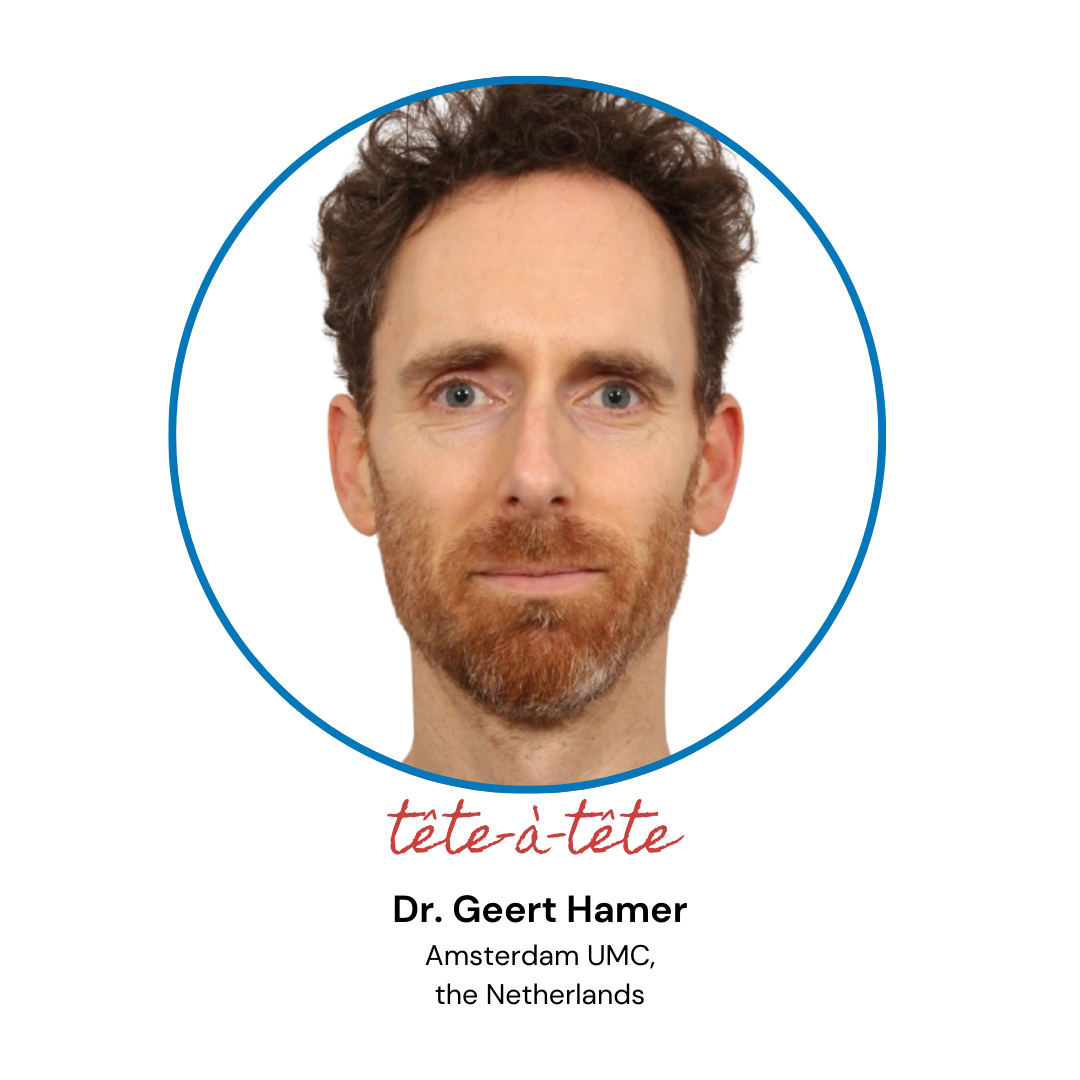We are delighted to introduce an interview with Dr. Geert Hamer, a plenary speaker at 17th NYRA meeting. Dr. Hamer is a Research Associate at the Amsterdam Reproduction & Development and Associate Professor at the Reproductive Biology Laboratory, Amsterdam UMC. His work focuses on genome stability maintenance and development of germ cells and human preimplantation embryos. In addition, his lab succeeded in inducing spermatogonial differentiation and meiosis in vitro, a technique that is currently explored in many laboratories for fertility treatment or preservation.
1. When and why did you decide to work in the field of reproductive biology?
My journey into reproductive biology began quite serendipitously. After completing my biology studies, I found myself at a crossroads with two PhD opportunities. While I was quickly offered a position in microbiology, the interview process for Dirk de Rooij’s lab, focusing on DNA repair in spermatogenesis, was more rigorous and intriguing. The challenging questions and more competitive nature of this position ultimately swayed my decision. I chose the path that seemed more professional and interesting, setting the stage for my career in reproductive biology.
- Could you share a moment of challenge in your career, and the lessons you learned from it?
One of the most significant challenges I faced was establishing my own research path upon returning to the Netherlands after nearly a decade abroad. The academic landscape can be quite competitive when it comes to securing positions that allow for independent research. I’m grateful for the connections I maintained from my PhD time, which, combined with my own efforts, helped me secure a grant and tenure position. This experience made me realize the importance of long-term planning, even during the postdoctoral phase.
- What has been the greatest success in your career so far?
While there have been numerous highs and lows throughout my career, my greatest source of pride has been my PhD students. Each one brings a unique set of characteristics, experiences, and talents to the table, and I’ve learned immensely from all of them. There’s an indescribable joy in receiving their completed thesis after years of hard work and watching them defend it.
- What advice would you give to young researchers?
To young (and old) researchers: celebrate every victory, no matter how small. While major milestones like article/grant acceptances certainly warrant a cake, don’t overlook the smaller wins. Take time to appreciate successful experiments, well-delivered presentations, or even unexpected results and ideas. In fact, pay extra attention to those surprising outcomes – they often hold the seeds of truly groundbreaking discoveries. Remember, it’s not just about the destination; enjoy the journey and all its little triumphs along the way.

